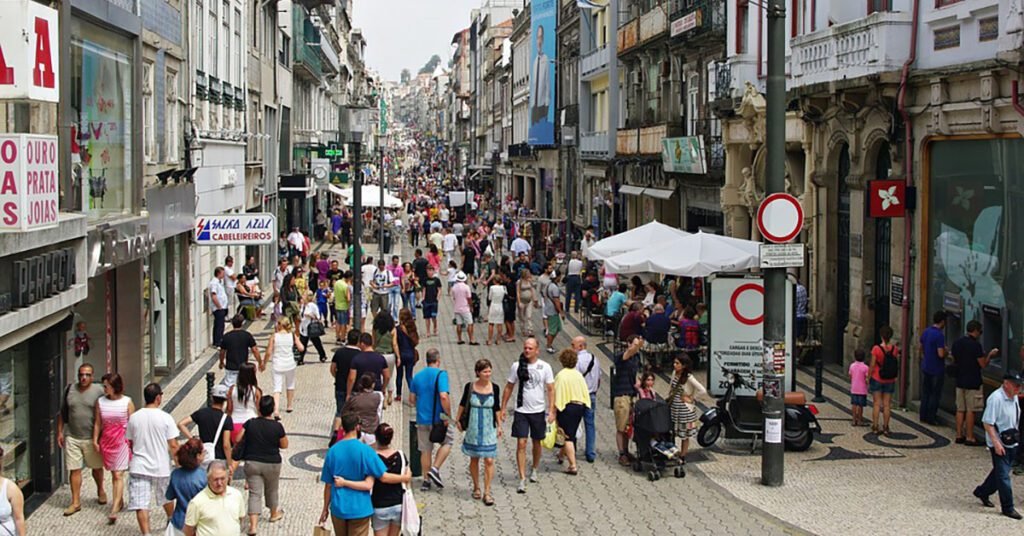Based on program BBC’s 100 Greatest Britons, the Portuguese public broadcasting station RTP organized a public poll contest called ‘Os Grandes Portugueses” (The Greatest Portuguese).
The series started in October 2006 and public was called to vote the 10 greatest personalities. On March 25th 2007, the results were announced together with the full list of 100.
Here you can find the list of the Top 10 Greatest Portuguese, in alphabetical order.
António de Oliveira Salazar (1889-1970)

António de Oliveira Salazar was a Portuguese politician and dictator of Portugal from 1932 to 1968 serving as Prime Minister. Having come to power under the Ditadura Nacional (“National Dictatorship”), he reframed the regime as the Estado Novo (“New State”), a corporatist dictatorship that ruled Portugal from 1933 until 1974.
Álvaro Cunhal (1913-2005)

Álvaro Cunhal was a Portuguese communist revolutionary and politician. He was one of the major opponents of the dictatorial regime of the Estado Novo. He served as secretary-general of the Portuguese Communist Party (PCP) from 1961 to 1992.
Aristides de Sousa Mendes (1885-1954)

Aristides de Sousa Mendes was Portuguese consul during World War II. As the Portuguese consul-general in the French city of Bordeaux, he defied the orders of António de Oliveira Salazar’s Estado Novo regime, issuing visas and passports to an undetermined number of refugees fleeing Nazi Germany, including Jews.
D. Afonso Henriques (1109-1185)

D. Afonso Henriques (Afonso I of Portugal) was the first king of Portugal. He achieved the independence of the County of Portugal, establishing a new kingdom and doubling its area with the Reconquista, an objective that he pursued until his death. He was nicknamed ‘O Conquistador’ (The Conqueror).
Luís de Camões (1524-1580)

Luís de Camões is considered Portugal’s and the Portuguese language’s greatest poet. His mastery of verse has been compared to that of Shakespeare, Milton, Vondel, Homer, Virgil and Dante. He wrote a considerable amount of lyrical poetry and drama but is best remembered for his epic work Os Lusíadas (The Lusiads). The influence of his masterpiece is so profound that Portuguese is sometimes called the “language of Camões”.The day of his death, 10 June, is Portugal’s national day.
D. João II (1455-1495)

D. João II (John II) was King of Portugal from 1481 until his death in 1495, and also for a brief time in 1477. He is known for re-establishing the power of the Portuguese monarchy, reinvigorating the Portuguese economy, and renewing his country’s exploration of Africa and Asia. He was nicknamed ‘O Princípe Perfeito’ (the Perfect Prince).
Infante D. Henrique (1394-1460)

Infante D. Henrique, O Navegador (Prince Henry the Navigator) was a central figure in the early days of the Portuguese Empire and in the 15th-century European maritime discoveries and maritime expansion. Through his administrative direction, he is regarded as the main initiator of what would be known as the Age of Discovery.
Fernando Pessoa (1888-1935)

Fernando Pessoa was a Portuguese poet, writer, literary critic, translator, publisher, and philosopher, described as one of the most significant literary figures of the 20th century and one of the greatest poets in the Portuguese language. Pessoa was a prolific writer, and not only under his own name, for he created approximately seventy-five others, of which three stand out, Alberto Caeiro, Álvaro de Campos, and Ricardo Reis.
Marquês de Pombal (1699-1782)

Sebastião José de Carvalho e Melo known as Marquês of Pombal was a Portuguese statesman and diplomat who effectively ruled the Portuguese Empire from 1750 to 1777 as chief minister to King D. José I. A liberal reformer influenced by the Age of Enlightenment, Pombal led Portugal’s recovery from the 1755 Lisbon earthquake and modernized the kingdom’s administrative, economic, and ecclesiastical institutions.
Vasco da Gama (1469-1524)

Vasco da Gama was a Portuguese explorer and the first European to reach India by sea. His initial voyage to India by way of Cape of Good Hope (1497–1499) was the first to link Europe and Asia by an ocean route, connecting the Atlantic and the Indian oceans. This is widely considered a milestone in world history, as it marked the beginning of a sea-based phase of global multiculturalism. Da Gama’s discovery of the sea route to India opened the way for an age of global imperialism and enabled the Portuguese to establish a long-lasting colonial empire along the way from Africa to Asia.


